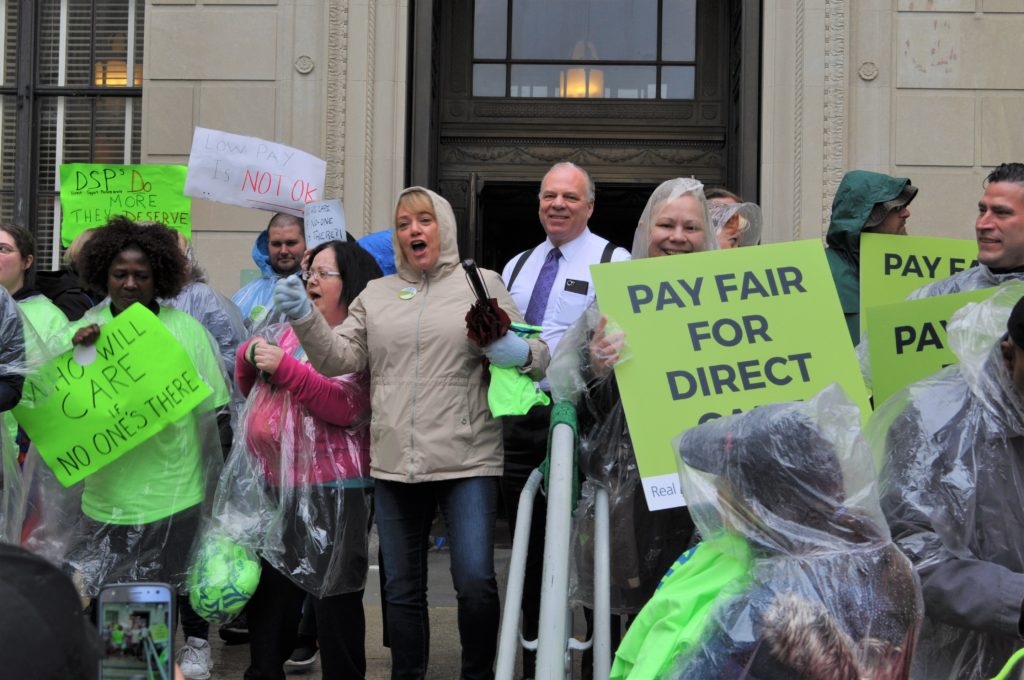Sweeney Joins in ‘Rally for A Living Wage’ for Direct Care Workers

Sweeney Joins in ‘Rally for A Living Wage’ for Direct Care Workers
Trenton – Senate President Steve Sweeney joined with the workers who provide care for the disabled in a “Rally for A Living Wage” that brought together a coalition of people urging a pay increase for the Direct Support Professionals.
The coalition of families, community provider agencies, support professionals and people with intellectual and developmental disabilities and their families advocating for increased state support for the workers who are earning an average of $10.50 per hour for work that can be physically and emotionally demanding.
“The service providers who are on the frontline providing care for the disabled should be fully appreciated and valued for their service,” said Senator Sweeney (D-Gloucester/Salem/Cumberland). “I have a lot of respect for DSP’s because I understand the type of work they do. I have worked hard each year to make sure there is additional funding in the budget for programs that support the developmentally disabled and for the workers who care for them.”
The Legislature added a $20 million budget resolution last year to increase DSP wages by $1.25 per hour. The coalition is seeking a further increase of $54 million in the upcoming state budget. Senator Sweeney said that additional support is a top priority but that fiscal reforms are needed to find the funding and to sustain it for future years.
“We will do all that we can to provide greater increases that can be sustained year after year,” said Senator Sweeney. “To do that, we really need to capture cost savings in other parts of government so that we have the resources to fund this priority. If we are successful in enacting fiscal reforms from the ‘Path to Progress’ report we will be able to allocate an additional $54 million in the state budget for wage increases that can be maintained.”
DSPs provide all supports necessary for individuals with intellectual/developmental disabilities to successfully live in their communities. Their duties include meeting medical and behavioral health needs, and teaching workplace, social, and activities of daily living skills. Due to the low salaries, DSPs often must receive public assistance and/or work multiple jobs, neither of which is in the best interest in those being served or the DSP.








